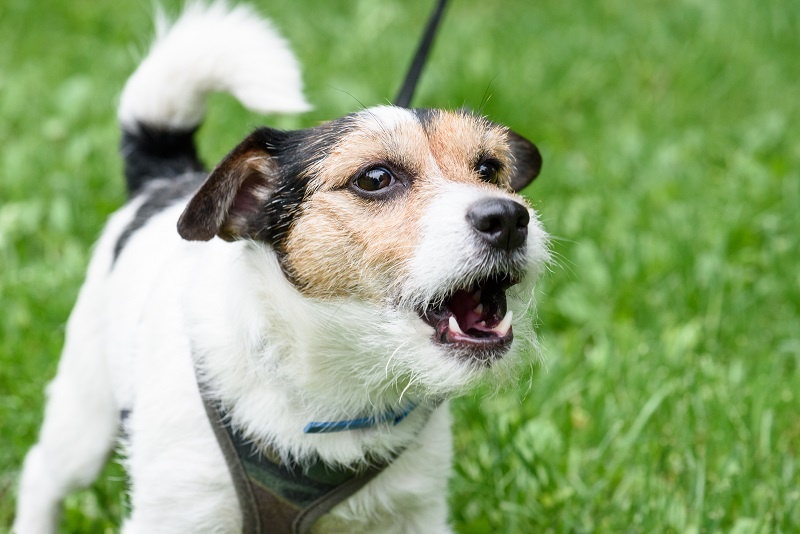Estimated reading time: 4 minutes
Why do dogs bark? Vocalisations such as barking, growling, whining are all part of a dog’s normal communication system; however, some dogs bark more than others such as Beagles and Fox Terriers whereas the Basenji doesn’t bark.
So, what can trigger your dog’s barking? Firstly, it is important to remember that you should not expect your dog never to bark: when he does, he is simply trying to tell you something. Once you know the triggers, you can then begin working on the problem. Don’t think that you will be able to stop your dog barking altogether – you need to be realistic – you will never be able to stop barking completely.
Excitement. The prospect of a walk or a game of frisbee when you come home presents an understandable reason for your dog to bark. In my opinion, this is a legitimate reason and I enjoy hearing a happy dog bark.
Frustration. Conversely, if your dog is not getting enough exercise, he may begin barking in frustration. Remember to think about the type of job your dog would normally be doing and organise exercise and activities for your dog accordingly. A Border Collie could be running miles herding sheep, a Spaniel could be out all day on a shoot, and either could be very frustrated at a quick walk around the block.

Age. Just like us, as dogs get older their acute senses begin to deteriorate. General background sounds may not be heard as clearly so a loud noise may seem much more amplified and your dog may bark in response.
Cognitive dysfunction. Amongst many other more acute symptoms your dog may bark excessively and as such you should seek veterinary help to help ease the symptoms.
Alarm barking. Barking when someone knocks at the door, car doors shutting, the sound of the wheelie bin being emptied are all noises which your dog needs to tell you about. With such specific triggers you can give your dog something else to do when he hears the noise, such as chasing a toy which is thrown in the opposite direction from where the noise originates from. Another option is to record the sounds which trigger your dog’s barking and to play them at a low level whilst rewarding him for not reacting.
Barking at people passing the house. Stop access to the window and provide chew toys or activity toys to occupy your dog.
Attention seeking behaviour. Barking to get your attention usually results in your dog being told to be quiet – your dog has got your attention and focus which is highly reinforcing. It is important to try to ignore the barking. You may need to get up and leave the room, which is likely to get your dog to stop barking and follow you. As soon as the barking stops you should reward your dog with a treat or a toy saying something like ‘quiet, good boy’.
Home alone. Dogs are social animals and if they haven’t become accustomed to being on their own, they may bark hoping that their owner will return. In their mind this works because you eventually return home. Separation related problems such as this need professional help and you should seek advice from an animal behaviourist or your veterinary surgeon.
Fear or Defence. Barking at other dogs or people when out and about or when visitors come to your house can have many causes. Your dog could be fearful as a result of inadequate socialisation or he could be defending a valuable resource: his home, his garden, or you, his owner. These can be difficult behaviours to overcome and require professional help from either an animal behaviourist or your veterinary surgeon.
Whatever the reason is for your dog’s barking you need to be focussed and determined to resolve the problem. If you relax your approach before the problem is overcome your dog may begin to bark even more!!!
Good luck!!


